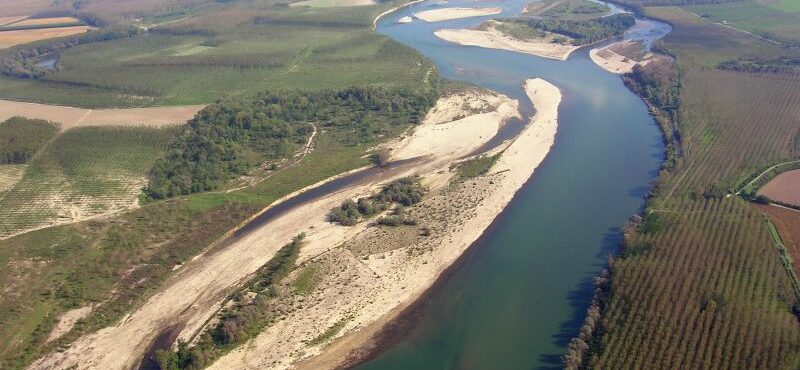
Conference on river connectivity in Italy: focus on the Nature Restoration Law
-
Rivers and Lakes
On Friday 22 November, the first event in Italy to reflect on the new European Regulation on Nature Restoration was held in Turin. It was organised by our member CIRF (Italian Centre for River Restoration) and the Po River Basin Authority, and supported by Wetlands International Europe.
The event entitled “The Regulation on nature restoration: recovering river connectivity to improve the quality of the territory and adapt to climate change ” was hosted in the prestigious venue of the ballroom of Palazzo Madama Turin, and saw the participation of 120 people in the room plus over 300 members connected remotely. The conferences hosted presentations by representatives of MASE, ISPRA, Adb PO, CIRF, AIPo, the University of Parma and Padua and numerous foreign speakers. They presented consolidated and ongoing experiences for years of flood risk reduction and adaptation to climate change, as well as extensive interventions to requalify river ecosystems. The type of nature restoration action required by the European Biodiversity Strategy 2030 and the new regulation were also discussed.
Highlights from the panellists
In France, the Agence de l’eau Rhone Méditerranée Corse has for years undertaken extensive action to restore sediment flows along the entire Rhone basin. The implementation of sediment management plans in the Rhone basin has led over the years to: the removal of 800 weirs and the restoration of ecological continuity for another 3019; the retreat of bank defences and embankments in order to allow the planimetric mobility of the riverbeds, with the extensive intervention implemented on the Durance already in 1997; the relocation of roads and houses to give more space to the rivers (as for example after the 2018 flood along the Aude river in Occitania, 38 houses were demolished in the municipality of Villegailhenc in 2022 in order to give space for mobility to the river).
The Spanish experience in the Ebro River basin is also of considerable interest. The finding that flood damage, despite the extensive presence of hydraulic protection works, was still excessive, with an estimate of 100 million euros of damage with a return period of 10 years, led to a radical change of paradigm and, according to the expression used by the rapporteur Samuel Chopo of the Confederación Hidrográfica del Ebro, to move from fighting against the river to managing it. This change of approach led to the definition of a 13 million euro intervention plan to be implemented between 2021 and 2027 consisting mostly of the removal and retreat of regulation works, as well as the adoption of interventions in the floodplain aimed at making the flooding of the areas compatible with the continuation of agricultural activity.
Sebastian Birk, from the University of Duisburg-Essen, a partner in the Horizon-funded MERLIN project that is analysing a number of interventions in Europe to assess their actual capacity to restore river ecosystems, highlighted how there are no technical obstacles to the implementation of restoration measures, and that the obstacles instead mainly come from a lack of political will.
As regards the intense activity of the Po River District Basin Authority, the redevelopment project of the Po floodplain in Gussola (Italy), completed a year ago and for which the first results of geomorphological and ecological monitoring were reported, and the Po redevelopment project financed with PNRR funds and currently being implemented with an allocation of 357 million euros and covering a total of 27,984 hectares of surface area, were presented.
The synthesis that can be drawn from this intense day is that the pursuit of the EU Biodiversity Strategy for 2030’s objectives, of which the new Regulation on nature restoration constitutes a reinforcement, is necessary and urgent. The restoration of ecosystems, especially river ecosystems, is essential to allow them to express fundamental ecosystem services on which the liveability of the territories depends, with essential economic and social benefits. The foreign experiences presented, in which the response to dramatic floods was the removal and retreat of works to give more space to natural dynamics along excessively channelled waterways, further highlight the fundamental need in Italy for a great cultural leap in the public debate on floods and droughts. This urgent cultural change, however, must be supported with facts, that is, with the monitoring of all the redevelopment and integrated interventions carried out, so as to make the broad spectrum of benefits brought about tangible for all.
Presentations and videos
On the CIRF website you can find the conference programme, the full video to review all the interventions and the speakers’ presentations in PDF format, available for download.
